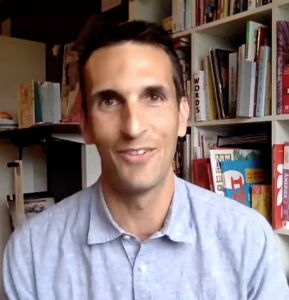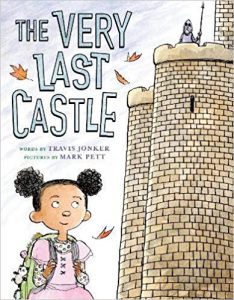Last Spring, I spoke to writer and artist Meera Lee Patel, and the conversation was filled with so many practical tips and deep wisdom that I reached out to her again to record a second podcast. To my total delight, she said yes!
So three huge things jumped out at me in this conversation that I think will deeply resonate with writers:
- I asked her if she gets feedback from her audience that discourages her to pursue new artistic paths and she replied that she does and the result is: “You feel do discouraged that it makes you not like that work that you made. The internet and social media makes you addicted to attention, and it really warps your sense of value. They become really twisted, where you’ve lost your values, and they are being dictated by all these people that you’ve never met and probably will never meet. Then I know that most of these people don’t know what they like because they are being told what to like by other people, and society and culture. It’s almost like everything is a total facade.
- “I rely on my creative community to feel sane. To know that I’m not crazy, and to know that other people are having the same experience and feeling the same way, and they also feel stuck, or feel scared about losing an audience and not being able to support themselves with work if they change. Community helps you not feel isolated and alone. That is what I rely on community for, along with encouragement. To feed off of their bravery and know that we are doing it together, and that they feel I’m doing the right thing and not making this big scary decision all by myself.”
- When I asked if work (commissions, licensing, business opportunities) comes to her, or if she has to seek it out, she replied, “I don’t have anybody emailing me asking me to do things for them. I reach out constantly. I used to reach out to just anybody, because I was like, ‘I just need work, and I need to pay the bills. I’m lucky enough that I get to be a little choosier now. I’m like, ‘What are my dream companies? Where does my work fit in? Do I believe in them and their products? Is my work ready.” Then I reach out to them, but nobody emails me back, ever.” When I asked her how she reached out to these companies, she explained how she just goes to the contact page on their websites, and uses that. She explains what she pitches. “I pitch myself so often, where I forget to where I reach out to, so it’s nice because I get to forgo that feeling of rejection.” “When I get rejected from somebody, and I feel really bummed about it, I have a rule, that for every rejection that I feel down about, I have to reach out to three more companies or people. That action of forging ahead anyway makes me feel like I am doing something to change the current state that I’m in. So that action changes my attitude, and I always feel better knowing that I already tried again.” For every 10 people I reach out to, I probably get three responses, and usually all three are rejections. But sometimes one is positive and two are rejections. Or two are rejections and one is ‘not right now, but try again in a year.’ So the acceptance rate is very very low. And I think that is across the board for most people, unless they are highly coveted, just because there are so many artists out there, and there is so much amazing work, that I don’t think companies and brands could possibly hire everybody. I don’t take it personally anymore, but it took awhile to get there.” What’s amazing to me is even with all of this rejection, this is the work it takes to create a full-time career as an artist. This process actually works! “I do know that people look at me and they are like, ‘I would like to be where you are,’ and people do not come to me, even now. And really any work I’ve gotten has been from me reaching and saying, ‘Hey, can I do this with you.”
Other topics we dig into:
- Her assessment of her most recent book launch, and how it was different from her previous two book launches. Hint: this launch was filled with much less pressure and anxiety for her.
- How she thinks about her role as a writer and the purpose of a book. She describes it as “I see myself as drawing a door. Now you walk through it and you see what is on the other side. I’m making a door appear for you.”
- Her struggling in balancing creating and marketing.
- How she sums up the importance of talking about your books: “Sharing with one person or five people or ten people is a start.”
- Her thoughts on how having an audience is just as difficult — if not more so — than having no audience at all: “Everybody wants a large audience, but with that comes responsibility, pressure, and expectation.”
- The challenges she has in managing social media, and dealing with expectations when people reach out to her for deep interactions.
- The ways she sustains herself as a full-time writer and illustrator.
- The different revenue streams that support her career as a full-time artist, and how she is adjusting them.
- How she manages anxiety around her career.
You can listen to the full interview by clicking ‘play’ below, or in the following places:
You can find Meera Lee Patel in the following places:
- My first interview with Meera from back in Spring of 2018
- meeralee.com
- Instagram: @meeraleepatel
- Her latest book: Made Out of Stars
- Her Etsy shop
- Her other books
Podcast: Play in new window | Download
Subscribe: RSS

 I recently spoke to author, book blogger, and school librarian Travis Jonker about three aspects how he became an author:
I recently spoke to author, book blogger, and school librarian Travis Jonker about three aspects how he became an author: